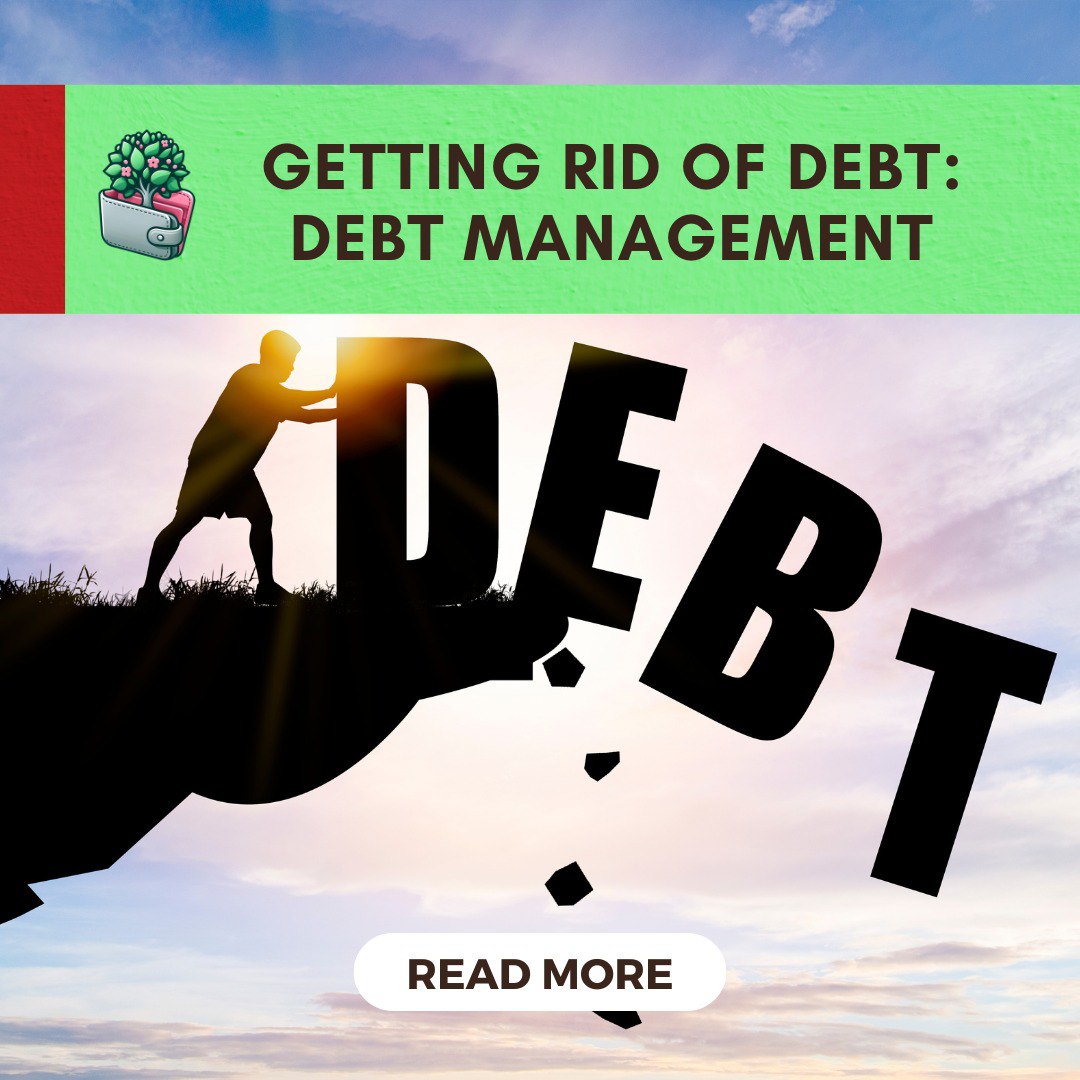Feeling overwhelmed by debt? You’re not alone. Many moms struggle to balance family responsibilities with financial stress.
Debt can feel like a heavy burden, limiting your ability to provide for your family and achieve your dreams. But fear not, there is a path to financial freedom. This comprehensive guide will empower you with the knowledge and tools to take control of your finances and break free from the cycle of debt.
We’ll explore the various strategies for managing debt, from creating a personalized debt management plan to negotiating with creditors and building an emergency fund. By following the advice in this guide, you can reduce your debt, improve your credit score, and achieve long-term financial stability.
Understanding Debt and Its Impact
Debt management is a strategic approach to handling and reducing debt. It involves a systematic debt management plan to assess your financial situation, create a budget, and develop effective repayment strategies. By implementing these steps, you can gain control over your finances and work towards a debt-free future.
Why is Debt Management Important?
Uncontrolled debt can lead to significant financial stress and negative consequences, such as:
- High-interest rates: Accumulating interest can quickly exacerbate your debt burden.
- Poor credit score: Late or missed monthly payment can damage your creditworthiness.
- Limited financial flexibility: Debt can restrict your ability to save, invest, or pursue financial goals.
- Emotional distress: Financial worries can negatively impact your mental health and overall well-being.
Types of Debt
Understanding the different types of debt can help you better manage your finances and create a debt management plan to tackle your obligations effectively.
Credit Card Debt
High-interest debt that arises from revolving credit accounts, often due to everyday purchases or emergencies. Managing monthly payment promptly is crucial to avoid compounding interest.
Student Loan Debt
Debt incurred to finance education, typically with lower interest rates and specific repayment plans, but often challenging to pay off over time due to its long-term nature.
Medical Debt
Debt resulting from unexpected healthcare expenses, such as hospital stays, treatments, or surgeries, which can quickly accumulate without adequate insurance coverage.
Personal Loans
Borrowed funds from a lender for various purposes, like consolidating debt, home improvements, or emergencies, often with fixed interest rates and repayment terms.
The Emotional Toll of Debt
Debt can take a significant emotional toll, often leading to stress, anxiety, and even depression as individuals grapple with the weight of financial obligations. The strain of debt can also impact relationships, causing tension and conflict between partners, family members, or friends. Additionally, financial worries often disrupt sleep, leaving individuals feeling exhausted and overwhelmed, which can further affect their mental and physical well-being. Recognizing these challenges is a vital step toward addressing the emotional impact of debt and seeking solutions.
The Financial Consequences of Debt
A lower credit score can impact your ability to secure loans or favorable interest rates in the future. It can also make saving and investing difficult, as a large portion of income may be directed toward repayments instead of building financial security. High levels of debt can limit financial opportunities, such as purchasing a home, starting a business, or pursuing other life goals. Thus, it creates a cycle that can be challenging to escape.
Creating a Personalized Debt Management Plan
A Debt Management Plan (DMP) is a strategic approach to managing and paying off debt. It typically involves the following steps:
Assessing Your Financial Situation
Before you can create a successful debt management plan, it’s crucial to understand your current financial situation. Start by:
- Calculating Your Income and Expenses:
- Identify all sources of income, including wages, salaries, and any additional income streams.
- Track your expenses, both fixed (e.g., rent, utilities) and variable (e.g., groceries, entertainment).
- Identifying Debt Sources and Interest Rates:
- Make a list of all your debts, including credit card debt, student loans, and personal loans.
- Note the interest rates for each debt, as this will impact your repayment strategy.
- Determining Your Debt-to-Income Ratio:
- Calculate your debt-to-income (DTI) ratio by dividing your total monthly debt payments by your total monthly income.
- A lower DTI ratio indicates a healthier financial position.
Setting Realistic Financial Goals
Once you have a clear picture of your financial situation, it’s time to set realistic goals:
- Short-Term Goals:
- Pay off a specific debt, such as a credit card or a small personal loan.
- Build an emergency fund to cover unexpected expenses.
- Long-Term Goals:
- Become debt-free.
- Save for a down payment on a house.
- Plan for retirement.
Creating a Budget
A budget is a powerful tool for managing your finances and tracking your progress toward your goals.
- Track Income and Expenses: Use budgeting apps or spreadsheets to monitor your income and expenses.
- Identify Areas for Savings: Look for opportunities to cut back on unnecessary expenses, such as dining out, entertainment, or subscriptions.
- Allocate Funds for Debt Repayment: Determine how much you can allocate to debt repayment each month. Consider using a debt repayment strategy like the debt snowball or debt avalanche method.
Not sure which budgeting method is right for you? Take our free quiz to find out!
Prioritizing Debts
Deciding how to tackle your debts? This section explores two effective debt management plans or strategies: the debt snowball and debt avalanche methods, each with its own advantages and drawbacks.
- Debt Snowball Method:
- Start by paying off the smallest debt first, while making minimum payments on the larger debts.
- Once the smallest debt is paid off, roll the payment into the next smallest debt.
- This method can provide a sense of accomplishment and motivation as you quickly pay off debts.
- Debt Avalanche Method:
- Prioritize debts with the highest interest rates first.
- This method can save money on interest charges in the long run.
By following these steps and customizing your debt management plan to your specific needs, you can take control of your finances and work towards a brighter financial future. Remember, consistency and discipline are key to achieving your goals.
Effective Debt Repayment Strategies
Effectively managing debt requires a well-rounded approach that includes negotiation, consolidation, saving, and credit improvement. These strategies can help reduce financial strain, lower costs, and pave the way to financial stability.
Negotiating with Creditors:
Negotiating with creditors can be an effective way to reduce your financial burden. Start by contacting your creditor, explaining your financial situation, and requesting lower interest rates or a reduction in monthly payments. Successful negotiation may involve persistence and a clear understanding of your payment capabilities, but it can ultimately lead to more manageable debt terms.
Consolidating Debt:
Debt consolidation can simplify repayment by combining multiple debts into a single loan or balance transfer credit card with potentially lower interest rates. While debt consolidation loans can reduce monthly payments and make budgeting easier, it’s important to weigh the benefits and drawbacks, as consolidation may extend repayment periods or include additional fees.
Building an Emergency Fund:
An emergency fund is crucial to avoid accumulating new debt in unexpected situations. Setting aside a portion of your income regularly, even in small amounts, can help build a financial cushion over time. Prioritize consistent saving to gradually grow your fund, providing a safety net for future challenges.
Improving Credit Score:
A strong credit score opens up better financial opportunities. Factors like payment history, credit utilization, and length of credit history all impact your score. By making timely payments, keeping credit card balances low, and regularly monitoring your credit report for errors, you can gradually improve your credit and access more favorable borrowing terms.
Working with Credit Counseling Agencies
Credit counseling can be a valuable tool in your debt management journey. A credit counselor can help you create a personalized plan to reduce debt, lower interest rates, and improve your credit score.
Key Benefits of Credit Counseling
- Personalized Debt Management Plans: Tailored debt payoff strategies to fit your specific financial situation.
- Negotiation with Creditors: Help in reducing interest rates and monthly payments.
- Free or Low-Cost Services: A trusted nonprofit credit counseling agency can offer affordable or even free credit counseling.
According to the CFPB, “Most credit counselors offer services through in-person meetings at local offices, online, or on the telephone. To get started with debt management plans, you can try the Financial Counseling Association of America or the National Foundation for Credit Counseling. You can also view of a list of approved credit counselors through the U.S. Department of Justice.”
Choosing a Reputable Credit Counseling Agency:
Consider factors such as accreditation, reputation, and transparent fee structures when looking at credit counseling agencies. Look for agencies certified by organizations like the National Foundation for Credit Counseling (NFCC) and check reviews or testimonials for their credit counselor. Be cautious of scams by avoiding agencies that demand upfront fees, guarantee quick fixes, or lack clear communication about services.
The Impact of Debt Management on Credit Scores
While closing accounts or lowering credit limits may temporarily impact your credit score, the long-term benefits of successful debt management are significant. By consistently repaying debts and maintaining a low credit utilization ratio, you can improve your credit score and enhance your financial standing.
Getting Back on Track After Debt Repayment
After successfully paying off your debts, take steps to prevent future financial challenges. Consider closing unused credit accounts to minimize the temptation of overspending. Maintain a disciplined budget to allocate funds for essential expenses, savings, and potential future debt.
Building an emergency fund can provide a financial safety net, allowing you to handle unexpected expenses without resorting to credit.
Tips for Managing Monthly Payments
To ensure successful debt management, prioritize timely credit card bills payment to avoid accruing additional fees and penalties. Automate payments to maintain consistency and prevent missed deadlines. Regularly review your budget and monthly payment to assess affordability and make necessary adjustments to stay on track with your financial goals.
Avoiding Debt Relief Scams
Debt relief scams can exacerbate financial problems. Be wary of debt collectors companies that make unrealistic promises or demand upfront fees.
Common Debt Relief Scams
Advance Fee Scams:
Some debt collectors do fraudulent schemes where individuals are asked to pay upfront fees for personal loans, services, or financial solutions that are never delivered.
Debt Settlement Scams:
Deceptive practices where companies promise debt settlement for a fraction of the cost but often charge high fees without delivering results, leaving consumers worse off.
Credit Repair Scams:
Schemes that claim to quickly fix credit scores for a fee, often using illegal or unethical methods that can harm the consumer further.
Red Flags and Warning Signs
- Unrealistic Promises: Legitimate consumer debt relief solutions take time.
- High Upfront Fees: Reputable companies typically charge fees based on the services provided.
- Pressure Tactics: Avoid companies that pressure you into making quick decisions and unsecured debt settlement.
According to Investopedia, “Unsecured debt refers to loans that are not backed by collateral. If the borrower defaults on the loan, the lender may not be able to recover their investment because the borrower is not required to pledge any specific assets as security for the loan. Because unsecured debts are considered riskier for the lender, they generally carry higher interest rates than collateralized loans.”
Building Financial Wellness
Once you’ve conquered your debt, it’s time to cultivate healthy financial habits that will set you up for long-term success.
Developing Health Financial Habits
To maintain financial health, cultivating healthy habits is key. Mindful spending, careful budgeting, and strategic saving and investing are crucial. Consider using budgeting apps to track expenses, prioritize needs over wants, and set aside funds for emergencies and long-term goals.
Seeking Professional Financial Advice:
For complex financial situations or significant life milestones, seeking professional financial advice can be invaluable. A financial advisor can offer personalized guidance, help you develop a comprehensive financial plan, and provide expert advice on investments, retirement planning, and estate planning.
Mindful Spending and Budgeting
Mindful spending and effective budgeting are crucial for financial health. By implementing techniques like the “sleep on it” rule for major purchases and using budgeting apps to track expenses, you can gain control of your finances. Creating a realistic budget that aligns with your income and financial goals will help you prioritize spending and save for the future.
Conclusion
We’ve delved into the intricacies of debt management, from understanding your financial landscape to crafting effective repayment strategies. A well-structured debt management plan, combined with discipline and patience, is your key to financial freedom.
Take the first step today. Assess your financial situation, create a budget, and prioritize your debts. If you need additional support in your debt management plans, consider consulting a credit counselor or financial advisor.
Remember, it’s never too late to regain control of your finances. With informed decisions and consistent action, you can overcome debt and build a brighter future for yourself and your loved ones.
Frequently Asked Questions
What is the meaning of debt management?
Debt management is a strategic approach to organizing and paying off debt by creating a budget, prioritizing repayments, and using methods like debt consolidation or credit counseling to reduce financial strain.
What is the best way to manage debt?
The best way to manage debt is to create a plan with a clear budget, choose a repayment strategy like the avalanche (highest interest first) or snowball (smallest balance first) method, and stay consistent with payments.
Why is it important to manage debt?
Managing debt is essential to avoid high-interest costs, protect your credit score, and maintain financial stability, reducing stress and allowing for greater financial flexibility.


